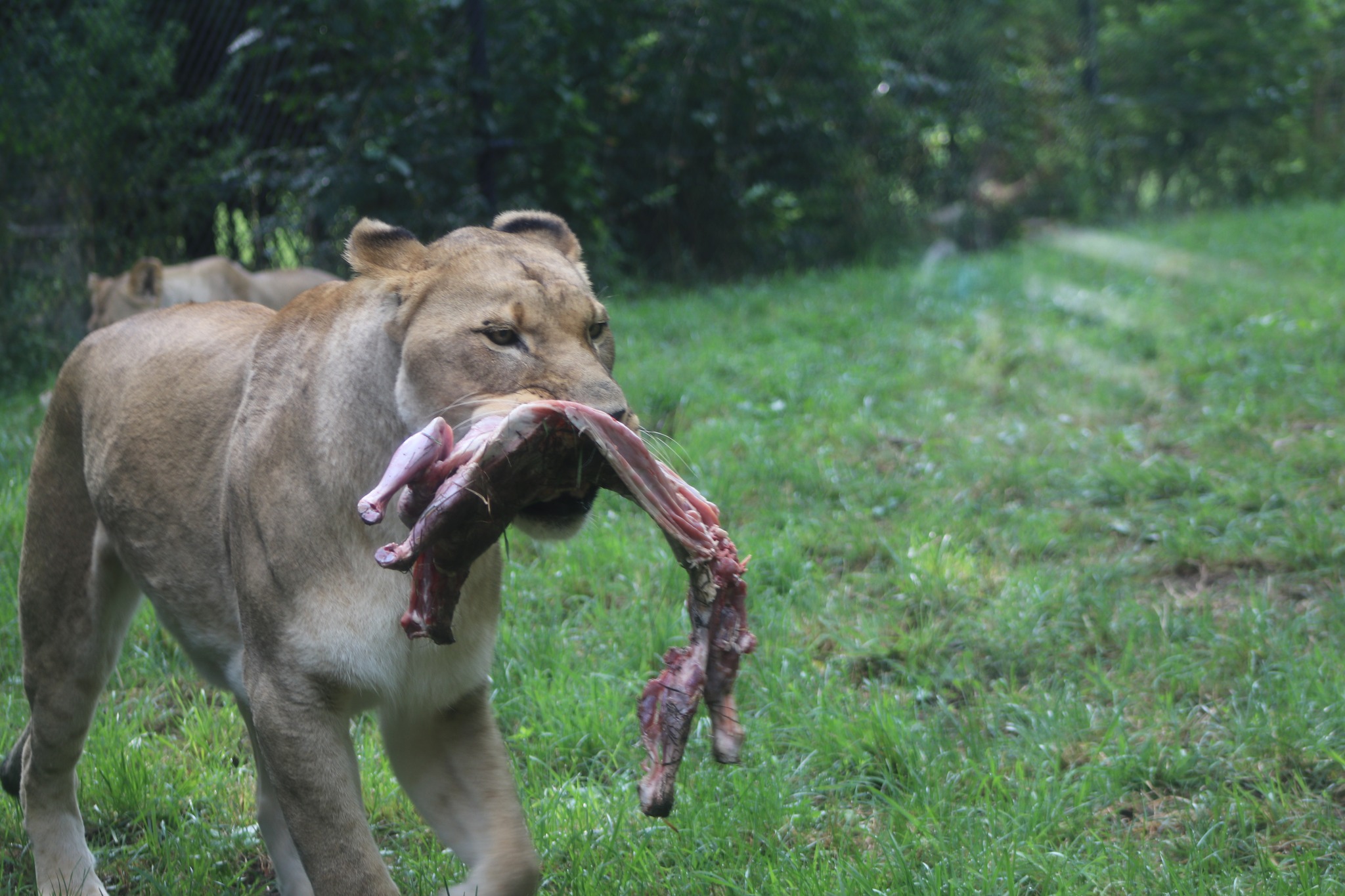- Celebrating Zuri’s 18th Birthday
- The Biology and Behavior of African Lions
- Importance of Nutrition for Captive Lions
- Role of Zoos in Conservation and Education
- Observing Ethical Considerations in Zoo Management
Celebrating Zuri’s 18th Birthday
Zuri, the African lioness, turning 18 today is no small feat. Eighteen years is a respectable age for a lion, as they typically live 10 to 14 years in the wild but can reach up to 20 years under human care. This milestone is a testament to the high-quality care she has received from her zookeepers. To celebrate, the Plains keepers have prepared a special meal of high-quality meat, perfect for a magnificent lioness. Proper nutrition is imperative for maintaining her health, and this special treat serves as both celebration and sustenance. Capturing the joy in Zuri’s eyes as she enjoys her feast reminds us of the dedication of zoo staff and the importance of such environments in lion conservation.
The Biology and Behavior of African Lions
African lions, scientifically known as Panthera leo, stand as symbols of strength and majesty in the animal kingdom. Male lions are distinguished by their iconic manes, which not only serve as a display of maturity and virility but also offer some protection in fights. Lionesses, on the other hand, are agile hunters and primary providers for their prides. Zuri, as an aged lioness, has witnessed the cycle of growth, experience, and wisdom that comes with her time.
Lions are social animals, forming groups called pride of up to 15 members. These prides usually include several related females, their offspring, and a small number of adult males. Female lions are cooperative hunters, using strategies and coordination to capture prey ranging from zebras and wildebeest to smaller mammals when larger prey is scarce.
Despite their prowess, lions face numerous threats in the wild, including habitat loss, human-wildlife conflict, and a decline in prey availability. This makes the role of institutions like zoos critical for their conservation.
Importance of Nutrition for Captive Lions
Ensuring a lion-like Zuri receives proper nutrition is vital for her health and well-being. In the wild, lions consume approximately 11 to 15 pounds of meat per day, but this can vary based on the success of their hunts. For captive lions, their diet is carefully calculated based on their age, health, and activity levels.
The meat provided to Zuri today is not merely a feast but a necessity for maintaining her muscular build and overall health. Lions require a diet rich in proteins and essential vitamins and minerals to mimic their wild diet. Zoo nutritionists work meticulously to design diets that prevent obesity, dental problems, and other health issues, aiming for balanced nourishment.
Supplements are often added to captive lions’ diets, ensuring they receive nutrients they might miss out on due to the lack of variety in their meals. Enrichment activities like meat-filled toys or large bones to chew on are also essential as they stimulate Zuri mentally and physically, mimicking the hunting behaviors and challenges she would face in the wild.
Role of Zoos in Conservation and Education
Zoos play a pivotal role in the conservation of species like African lions. With wild populations facing continuous decline due to poaching, habitat destruction, and human encroachment, zoos serve as sanctuaries for endangered species. They participate in breeding programs aimed at maintaining genetic diversity and bolstering population numbers.
Educationally, zoos are uniquely positioned to foster public awareness and appreciation for wildlife. Observing Zuri and other lions, visitors gain insights into their behavior, challenges, and the importance of conservation efforts. Interactive exhibits, informative talks, and vibrant displays work together to instill a responsibility toward protecting these magnificent creatures.
Furthermore, many zoos support conservation projects globally, providing funding and expertise to initiatives aimed at protecting natural habitats and mitigating human-wildlife conflicts. Research conducted within zoos also contributes valuable knowledge that can be applied to in-situ conservation efforts.
Observing Ethical Considerations in Zoo Management
Animal welfare is a fundamental aspect of modern zoo management. Ethical considerations ensure that animals like Zuri live in environments that replicate their natural habitats as closely as possible. Enclosures are designed to offer space for movement, privacy, and enrichment. Climate control, veterinary care, and psychological well-being are critical components of animal care programs.
Behavioral enrichment is more than just entertainment for visitors; it’s crucial for the mental health of animals. Activities that encourage natural behaviors, from hunting simulations to social interactions, help prevent psychological issues such as stress and boredom.
Zoological institutions are transparent about their practices and adhere to rigorous standards set by accrediting bodies like the Association of Zoos and Aquariums (AZA). These guidelines ensure that animals receive optimal care and that their physical and mental needs are met.
The celebration of Zuri’s 18th birthday is not just a festivity. It highlights the intricate efforts of zookeepers, zoologists, and conservationists dedicated to preserving the splendor of African lions. By educating the public and participating in significant conservation initiatives, zoos help safeguard the future of these majestic mammals. The story of Zuri’s milestone serves as a reminder of the fascinating life of African lions and the importance of their conservation in captivity and the wild.
*****
Source Description
FEAST your eyes on the 🥳 Zuri, the African lion turns 18 today. ❤️🦁 To celebrate her special day, our Plains keepers gifted her to some paws-itively delicious meat If you’re celebrating a today, don’t forget to treat yourself to a delicious meal for your special day.


